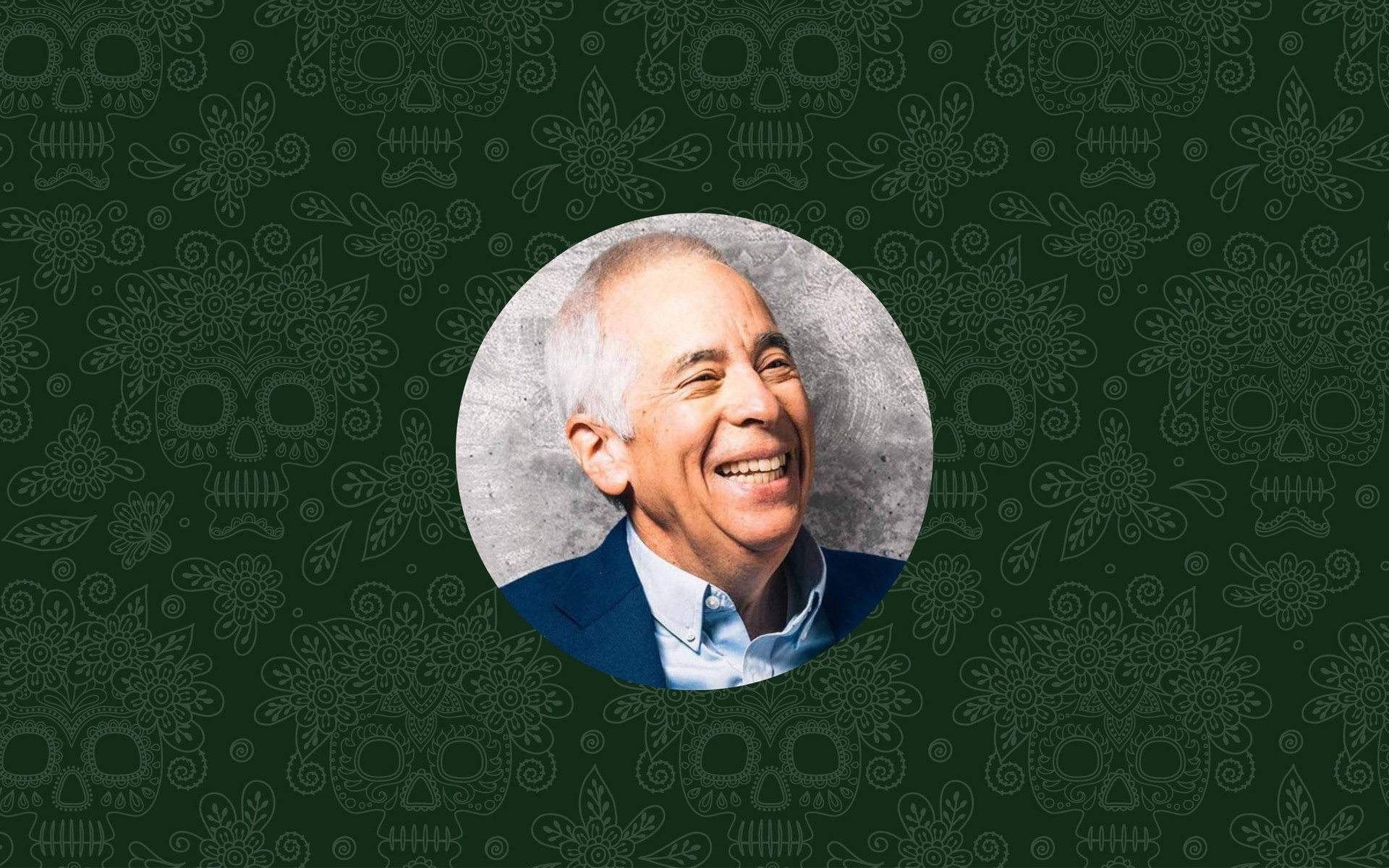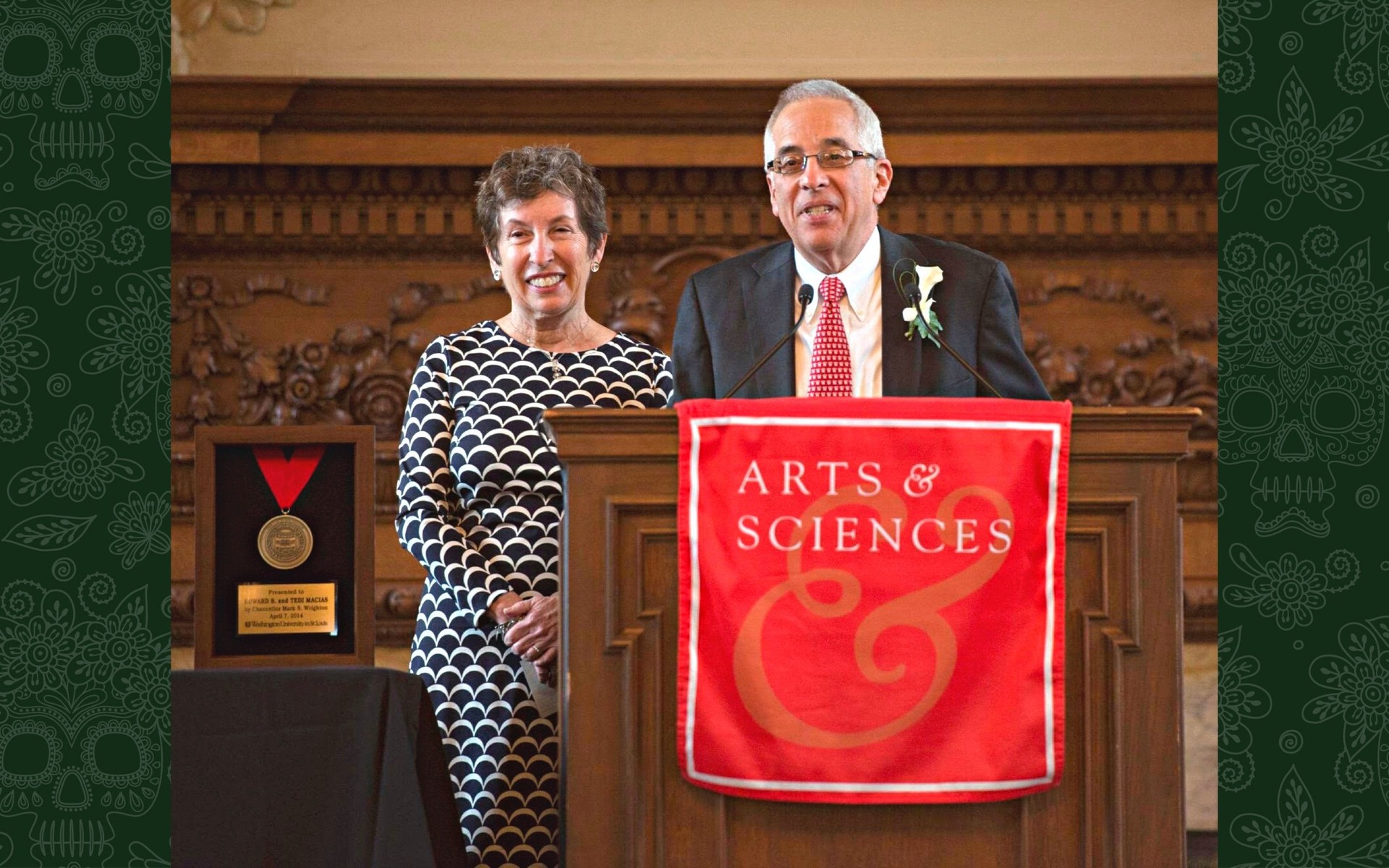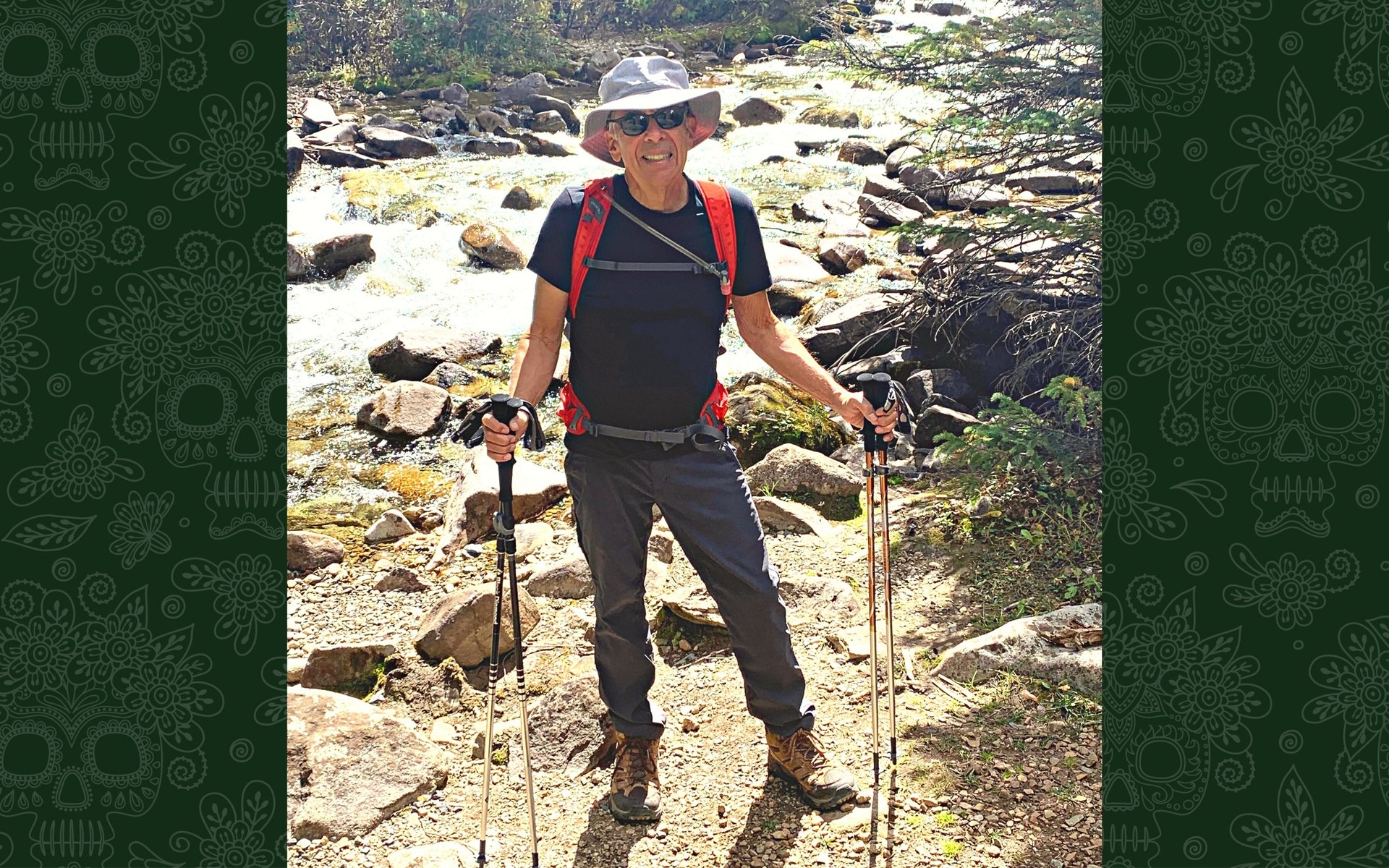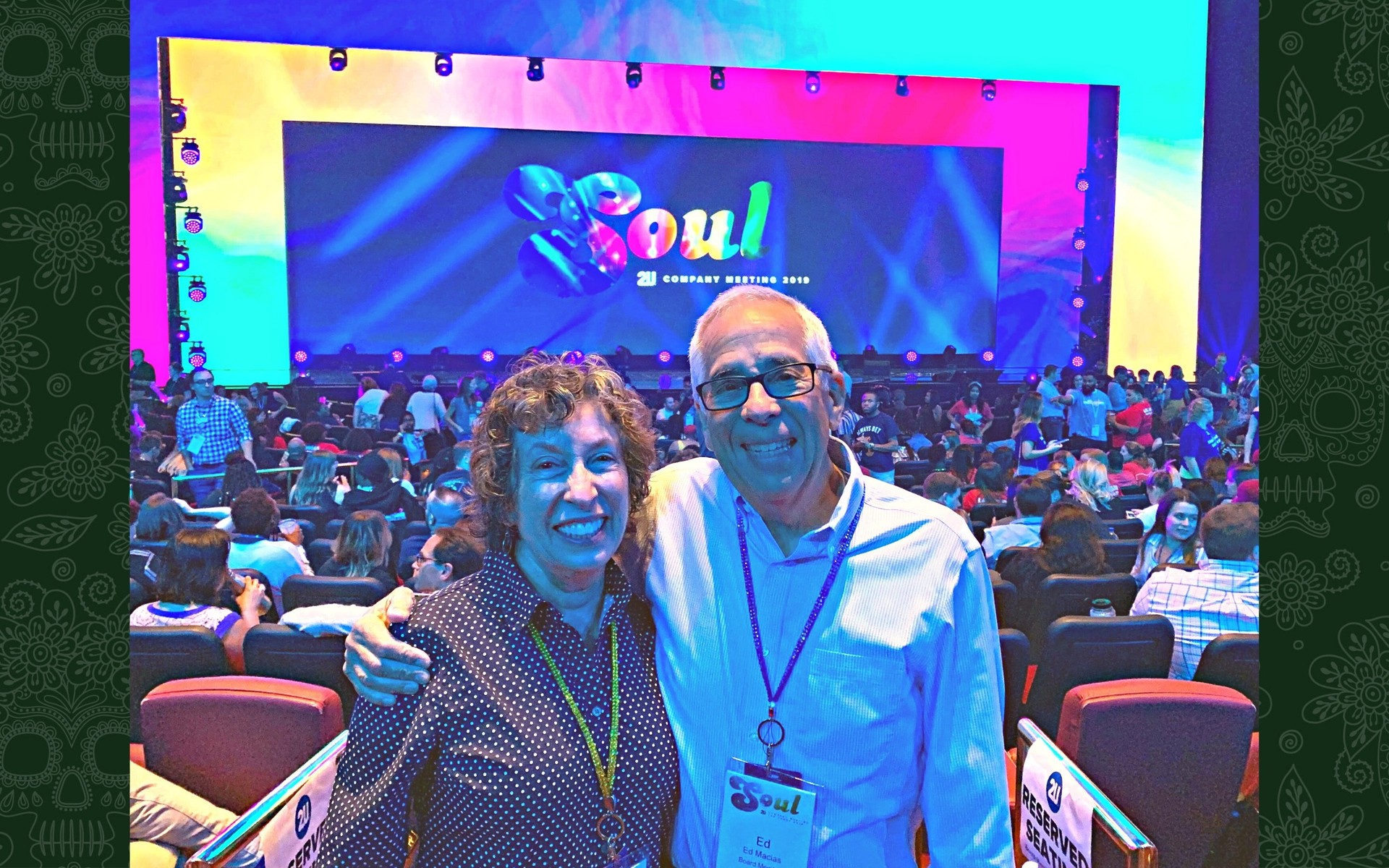Culture
A Guiding Light for Hispanic Heritage Month: My Interview with 2U Board Member Ed Macias
Written by Andres Rocha on Oct 7, 2021
Related content: Diversity And Inclusion, Leadership

As the global chair of TuGente, 2U’s Business Resource Network (BRN) for Latinx employees and our allies, I had the privilege of getting to know one of 2U’s Board Members, Ed Macias. TuGente sees Ed as someone of Latinx heritage who’s in a vital position to help advocate for our BRN’s mission and help us continue to build awareness and effect change both within and outside the company.
Beyond being the former provost of Washington University at St. Louis for 25 years—as well as a distinguished professor of chemistry who got his Ph.D. at MIT—Ed is also an avid athlete. He bikes, hikes, does yoga, and earlier this summer even participated in Swim Across America alongside 500 other swimmers, including a former Olympian. All to say that Ed is an extremely approachable and well-rounded leader, academic, and human being who cares deeply about education and opportunity. I sat down with Ed to get his take on everything from advice for empowering more diverse leaders to the future of online learning. Here are some highlights from our conversation.

Hi, Ed. Thanks so much for taking the time to connect. Diversity, equity, and inclusion (DEI) is often discussed in academic circles as it relates to creating more opportunity for learners. What’s your perspective on the current state of DEI in universities and in leadership at large?
All my career, I’ve engaged with the issue of diversity. In the past, university leadership was traditionally a very white, male space. If you came from a different background, it could give you a negative edge; namely, that you’re “other,” and people seemed to be more concerned about differences back then. Today, this is changing dramatically in most universities, but it’s still incredibly important to train people up and down about building more diversity at all levels of an organization, including the C-suite—and not just at universities, but across all businesses and areas of life. You need to actively take stock of your hiring and promoting practices, and oftentimes that starts just by simply looking at who’s in the room with you.
Are there moments in your career where someone inspired you, mentored you, or gave you an important opportunity that really helped lead you to success?
The first person who helped me was my high school chemistry teacher—he did these experiments that fascinated me and got me into the subject. My freshman chemistry professor in college helped encourage me through my struggles with the more mathematical and physics-related parts of chemistry. He kept reiterating “you can do it”—which is worth its weight in gold when someone you believe in and admire says that to you. I dedicated my MIT Ph.D. thesis to my college chemistry professor, because I wouldn’t have made it there otherwise.

One thing that’s interesting about this question is that, even though I’m of Mexican descent, many people think my last name is Greek. So I’m not sure if the support I got earlier in life would have been any different had people thought differently. Even when I was provost at Washington University, the chancellor at the time said, “You know Ed, we don’t have any Hispanic people in top leadership.” He and I had been working together for a long time, and he had no idea of my cultural background. That’s when I really started to realize it might not be such a good thing that people don’t know my heritage. Since then, I’ve worked with many others in our community, including the founder of an organization in St. Louis called Casa de Salud, which provides healthcare for uninsured and underinsured individuals with a focus on immigrants and the Hispanic population. He asked me to get involved and I’ve been their chairman of the board for several years. But my heritage was somewhat “invisible” before that.
What’s your advice for organizations when it comes to hiring, inspiring, and bringing on more diverse leadership?
The first thing I would say is that you have to be completely open and frank about what your goals are. You have to explicitly say “we want you” to the Hispanic population, or whichever demographic you’re reaching out to. That makes it clear to them that you’re a place that cares. But then you need to be careful not to assume that the Hispanic community is all one big homogeneous group with the same cultural backgrounds and needs and approaches to things. Otherwise, people you hire might begin to feel uncomfortable and probably not stick around for too long. So you have to learn how to broaden your definitions and understandings of what diversity means, and that takes time.

That connects to this concept of lifelong learning—in that we’re all trying to get better with these issues every single day and be better advocates. So on this topic, how would you consider yourself a lifelong learner, and how have you applied that philosophy throughout your career?
I obviously spent a lot of time at Washington University promoting the idea of lifelong learning in support of our students. A lot of my time now is spent reading—mystery novels, Shakespeare, keeping up on tech, for example. I read 65 to 70 books last year, which is more than one per week.
Lifelong learning extends into how I build relationships, too. As provost, I was the chief academic officer, which meant I was involved in everything. I loved it because I could meet with people and find out what they do and why they do it. I made it my mission to informally meet with every new faculty member, so that when I saw them again around campus I could bring up what they told me and ask how it was going. It blew them away, because I remembered them and knew what was most important to them, right there in that moment. A senior faculty member once told me I knew more about what was going on at the university than anyone else—and it’s because I invested in getting to know people.
You’ve had a tremendous career in education and seen all sorts of iterations of what works and what doesn’t. So how do you envision the next decade of online education going?
There’s no question that online education is here to stay. Of course, it’s going to change and there will be better examples of hybrid learning to come. There are ways that on-campus and online can merge really well together, but I think the world is pretty early in the game on figuring all that out.
Universities can be slow to accept change, but that shouldn’t always be perceived as a bad thing. For one, they do a great job of keeping history in the forefront so that we can learn from the past. But online education is not going away after COVID is behind us. We’re going to keep learning from what we do and make it even better.
Latest.
Learn more about us.
At 2U, we’re on a mission—to eliminate the back row in higher education and help universities thrive in the digital age. To learn more about who we are and what we do, follow the links below.